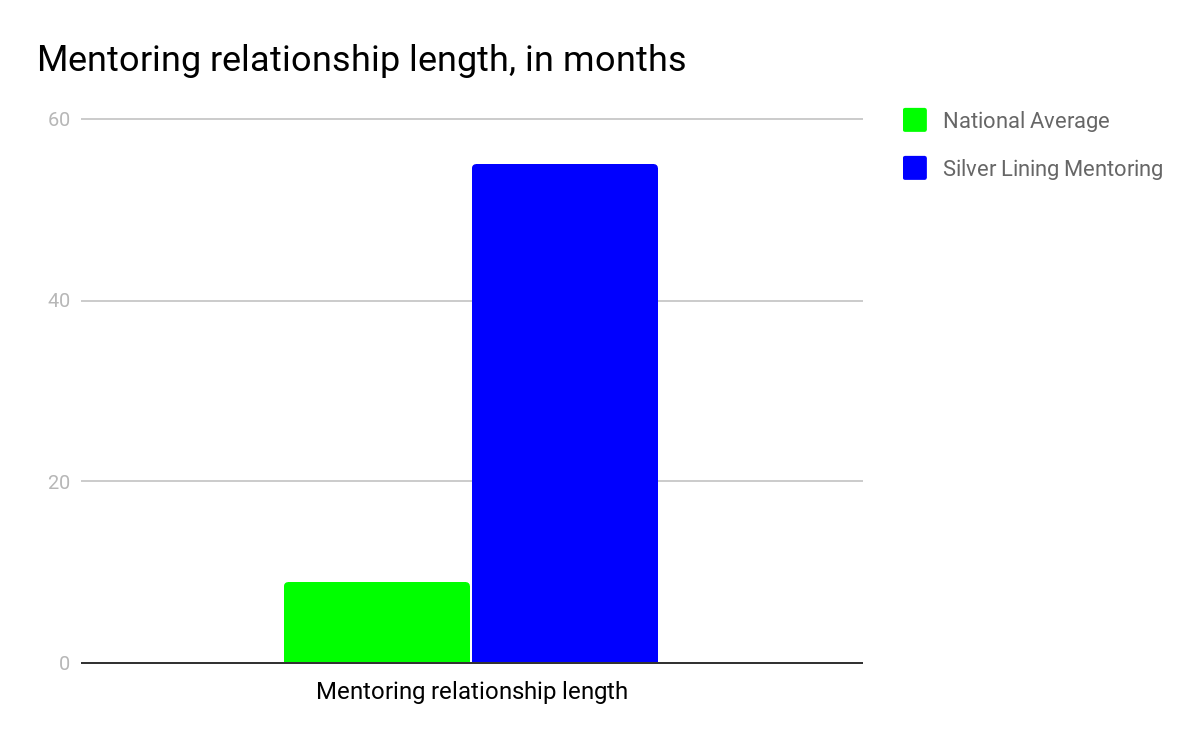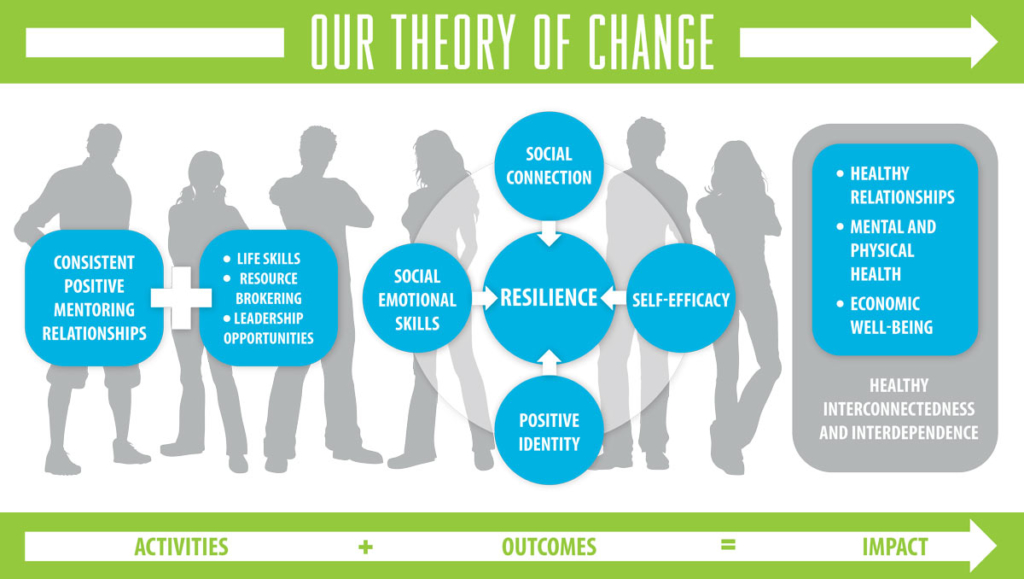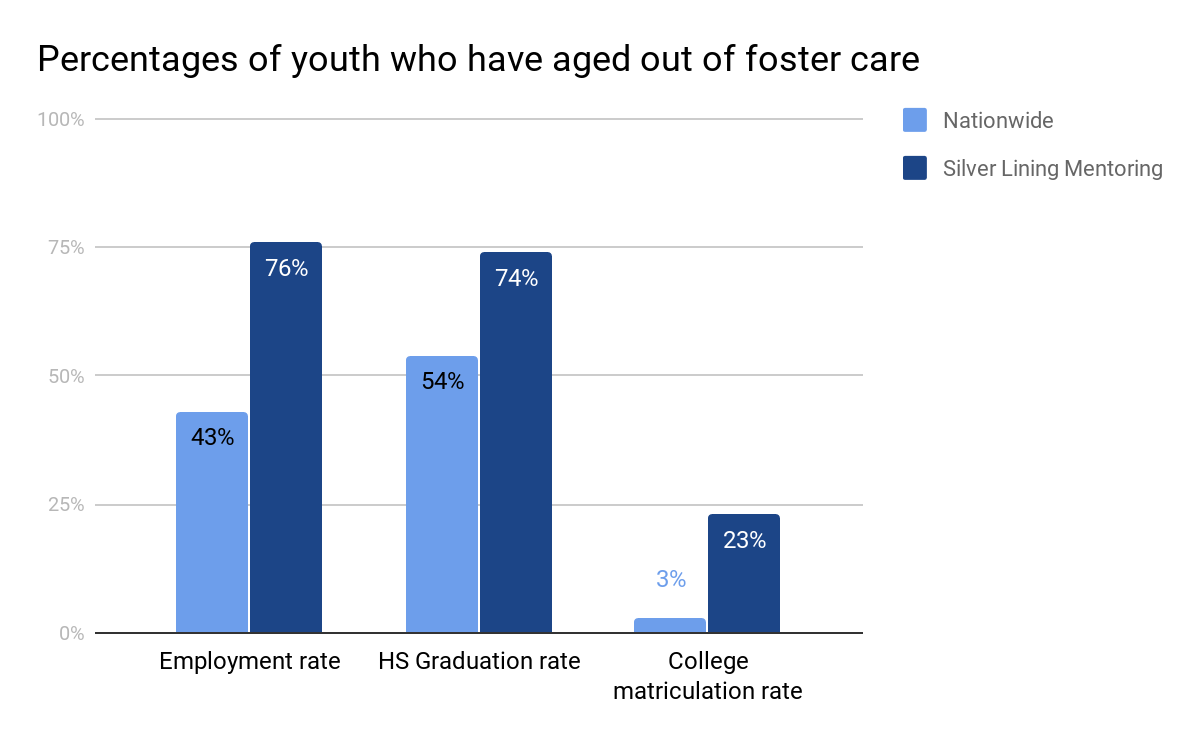IMPACT
When it comes to improving outcomes for youth in foster care, long-term, committed relationships make all the difference. Research shows that permanent social connections are vitally important to the healthy development of all youth.
Permanent social connections are especially important for young people impacted by foster care, for whom these connections are often elusive.
There are nearly 2,000 young people in foster care in Greater Boston and over 10,000 across Massachusetts. Young people in foster care enter the system through no fault of their own. After determining that they are not safe in their families of origin, the state begins a process to place young people in protective custody. For the young person, this typically means being removed from their families and communities, often without warning, with all of their belongings in a garbage bag. Once in the foster care system, young people face frequent disruptions in homes, schools, and communities, moving multiple times per year. With each move, young people can lose as many as four to six months of academic progress. Frequent changes in schools and communities also mean that youth in foster care are less likely to find natural mentors in their lives, like teachers or coaches.
To learn more about the impact of positive, consistent adult relationships in the lives of foster youth, check CEO, Colby Swettberg’s recent TED Talk below.
The experience of adversity combined with the absence of stable, committed adults in the lives of youth in foster care contribute to a higher risk for negative outcomes in adulthood:
Mentoring is a high-impact, cost-effective solution, especially for young people who have experienced trauma.
Research on child development demonstrates time and again that consistent, positive relationships are paramount to healthy development. For example, studies show that youth with mentors are over 50% more likely to graduate high school, 40% more likely to be employed, and 25% less likely to be in a gang. Furthermore, mentoring relationships are best when they’re long-term: research shows that relationships lasting at least one year net positive results, whereas relationships lasting under three months have a negative impact.
For young people in foster care, the consistent, positive adult relationships provided by trained volunteer mentors are more than a “hand up”, they are necessary for their healthy development.
At Silver Lining Mentoring, we focus on supporting the need for caring, consistent adults in the lives of youth in foster care. Through our model, we seek to impact:
Together, these outcomes are key building blocks of resilience, which help young people to cope with adversity.
The core approach of our programs is to match young people with mentors who commit to staying in their lives for at least one year. The presence of a caring adult can help to buffer the impact of trauma and toxic stress.
Through these relationships, young people develop their capacity to create social connections throughout their lives. This capacity is key to their well-being: it helps them to draw on relational connections to navigate challenges, to celebrate successes and provide a sense of belonging.
Our unique approach provides extensive training and support from Masters’ level staff to meet the specific needs of youth who have experienced foster care. Young people’s lives are unpredictable and often complicated – our staff help the mentors to navigate these challenges so that they can persist through inevitable transitions, providing mentees with the opportunities to build important social-emotional skills and positive identity in the context of caring relationships.
Silver Lining Mentoring provides young people with the opportunity to build self-efficacy by equipping them with the skills and access to resources they need to navigate adulthood. Approximately 200 of Boston’s young people age out of foster care annually – this means that when they turn 18, the state is no longer legally or financially responsible for their well-being and they are thrust into the adult world alone. Silver Lining prepares young people with financial literacy and job readiness skills to overcome barriers to self-sufficiency and counsel them when they face new obstacles.
Through a community of supports and relationships, Silver Lining Mentoring helps grow resilience in young people who are all too often without the resources needed to thrive. We envision an adulthood for young people who have experienced foster care that is buoyed by healthy interdependence and connection.
Silver Lining meets the needs of youth in foster care through an integrated approach, at the core of which is a one-to-one mentoring relationship.
Progress towards resilience along the four dimensions of social connectedness, social-emotional skills, self-efficacy, and social identity drive longer-term outcomes for youth involved with Silver Lining Mentoring that result in healthy interconnectedness, interdependence and independence. This leads to:
Based on a survey of SLM-involved youth who aged out of the foster care system at 18, we are seeing evidence of how helping to bolster a young person’s resilience can result in positive outcomes in adulthood.




